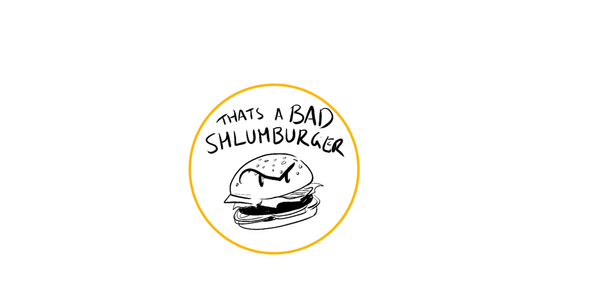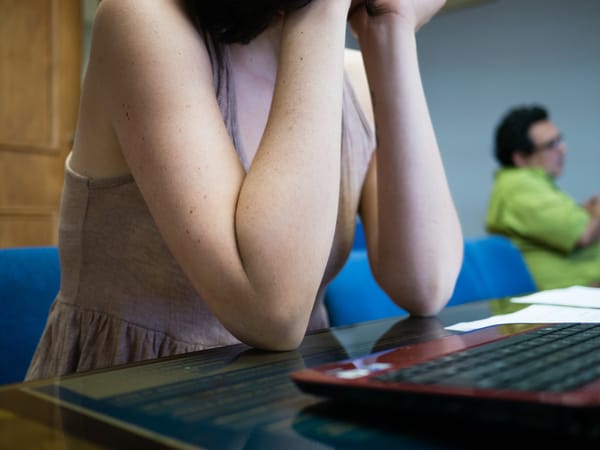Why do we stigmatise abortion?
One in three women will have an abortion. So where are they?

I haven’t had an abortion. In fact, I only know two people who have and they personally told me of it. One was a girl I went to school with, who had an abortion aged 15, and lost a lot of friends who had never realised they were pro-life until that moment. The other is my mother, who speaks about it with the same straightforward frankness with which she talks about close family deaths: as something sad that mights have been traumatic or difficult at the time, but ultimately is normal and a standard part of life.
You see, one in three women in the UK will have an abortion over the course of their lifetime. That’s a lot of women. Even if you take the pill religiously, it’s still only 99.9% effective, which means that on average, one woman in every thousand taking the pill perfectly will become pregnant over the course of the year. But let’s be real. No one uses any method of contraception perfectly. People miss days, get sick, or break condoms. Accidents happen and people get pregnant, and maybe they don’t want to raise a child right now, thank you. Nonetheless these women exist. But where are they?
We don’t know who they are because abortion is such a stigmatised issue that no one talks about, often not even to their closest friends. Yes, even at Imperial – where we’re all smart and already making huge sacrifices for our education and we’re going to take precautions proportional to what we have to lose – accidents will happen. Whether it’s a slip up, or pressure from a horny boy who wants to get his rocks off bareback, there are people walking around campus under the shadow of an unexpected pregnancy.
It shouldn’t be a big deal. 95% of women who have abortions in Britain don’t regret them. They’re mostly non-events: early abortions are barely any different from taking the morning-after pill, beyond the inconvenience of having to make doctor’s appointments. Without touching on moral dilemmas,an unwanted pregnancy is a problem that needs dealing with. Even in a country where abortion has been legal for over fifty years, it’s not considered proper to talk about it. People want you to brush it away and hush it up, to deal with it quietly to avoid the sting of breaking the taboo. Or, because even if they are pro-choice, they are judging you for getting yourself into this situation.
We all take risks when it comes to having sex, whether it’s the risk of getting an STI or getting pregnant. Why can’t we think of an unexpected pregnancy the same as getting chlamydia (which is also unfairly stigmatised, but less so)? You can deal with it by taking a few pills, so why is it any different, even for those who don’t see a moral problem with terminating a pregnancy? Is it traumatic because there is inherent moral questioning, or is it traumatic because the stigma that surrounds abortion is so powerful that you’re almost forced to keep it a secret, disabling your support network and inducing feelings of shame.
I don’t know. My only experience with abortion amongst my peers, in what I thought was a very reasonable and sensible situation, resulted in a lot of gossip, broken friendships, and hurt feelings. I’ve never come into contact with any positive experiences of abortion, never met anyone who needed to terminate a pregnancy and did what they had to do with no negative consequences or regrets, and this is wildly unacceptable when it’s a thing that around a third of women will go through in their lifetime.
It doesn’t have to be this way. We don’t have to make abortions these huge secrets that we don’t talk about. It’s frustrating and it makes me angry that the only time that abortion comes up in conversation is in a sex-negative context that puts women down. Women who unexpectedly get pregnant are not any less deserving of respect, they are not stupid, they are not murderers and they are not evil. They are just women, like you and I, who happen to have undergone a standard medical procedure. The decisions that we make concerning our bodies and reproduction should be only ours to make, and no one else’s to judge.
At a time when the right to have full agency over our reproduction is not something that women can take for granted; when in Ireland, abortion is still illegal, and in the United States access to abortion and even contraception has been fought against, silence is unacceptable. Only if we talk about it can we maybe address educating people – teaching girls to be assertive about their right to safe sex while teaching everyone to respect their partners and be considerate of the subtleties of consent. The more we talk about abortion and stop sweeping it under the rug, the more we normalise it as something that is ultimately a normal part of life. And yeah, maybe we can stop being a dick to people who are brave enough to admit they’ve had an abortion. That might be nice.










